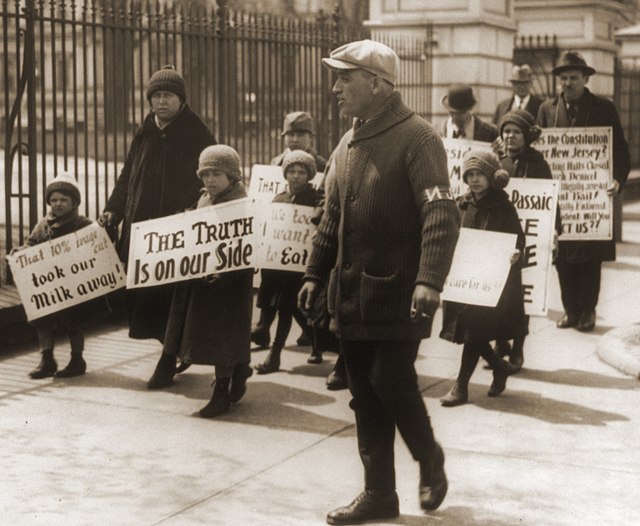Albert Weisbord (1900–1977) was an American political activist and union organizer. He is best remembered, along his wife Vera Buch, as one of the primary union organizers of the seminal 1926 Passaic Textile Strike and as the founder of a small Trotskyist political organization of the 1930s called the Communist League of Struggle.
Drawing of Albert Weisbord used in the Communist Press, 1926. Probably drawn by Hugo Gellert.
Leaflet for a speech by Weisbord given in connection with the 10th Anniversary of the Russian Revolution.
1926 Passaic textile strike
The 1926 Passaic textile strike was a work stoppage by over 15,000 woolen mill workers in and around Passaic, New Jersey, over wage issues in several factories in the vicinity. Conducted in its initial phase by a "United Front Committee" organized by the Trade Union Educational League of the Workers (Communist) Party, the strike began on January 25, 1926, and officially ended only on March 1, 1927, when the final mill being picketed signed a contract with the striking workers. It was the first Communist-led work stoppage in the United States. The event was memorialized by a seven reel silent movie intended to generate sympathy and funds for the striking workers.
Passaic strikers and their children picketing outside the White House in Washington, DC.
Martin Winkler arrested by police for resistance
A delegation from textile mills visiting Washington, D.C. March 17, 1926
Albert Weisbord, the primary organizer of the strike, was removed in the summer of 1926. He wrote a substantial pamphlet and went on a speaking tour detailing his experiences.






